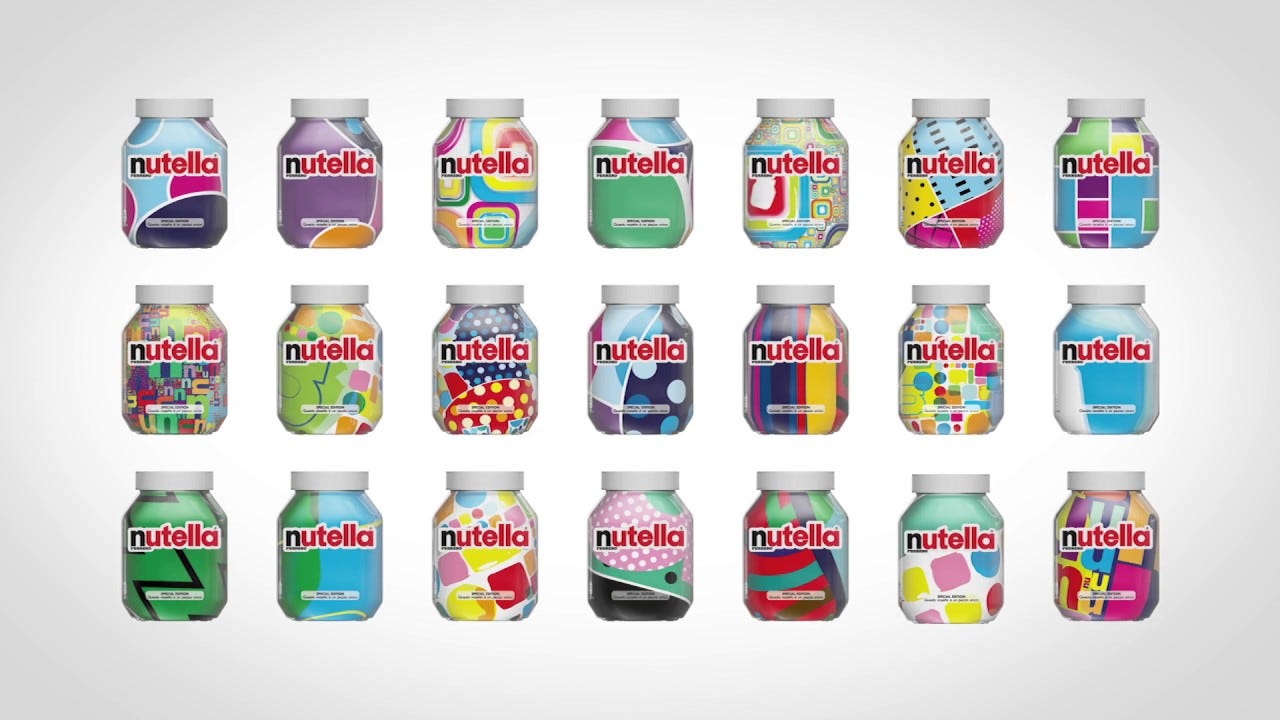Does AI Marketing decision have a positive impact on branding?
So, I was at an marketing event, and someone's question raised another concern, "Does AI really boost branding?" My answer? Honestly, it's complicated! It got me thinking, so I dove into it.
Last week, I joined an event for the Marketing community in Helsinki. A guest asked an interesting question: "Does AI Marketing decision have a positive impact on customer loyalty?" It was such a coincidence that the speaker and I gave the same answer: "It's hard to say!"
When I got back home, I applied that same question to my area of expertise, BRANDING. Then, I started researching and reviewing my knowledge to write this week's blog post. This inspired me to do it as soon as possible, delaying my scheduled article. Let's get started!
How AI is changing Marketing for brands
Related article: How to build brand from scratch
From my experience diving into brand building, and honestly, playing around with AI myself, I've seen it make some serious waves in how we do marketing. It's not just theory, either; it's what I've witnessed firsthand. There are a few key areas where AI is really changing the game, and I can break them down for you.
Enhanced personalization: AI algorithms can analyze big amounts of customer data to deliver personalized experiences. This includes recommending products a customer might be interested in based on their past purchases or browsing history, tailoring content to match individual preferences, and providing customized offers that cater to specific needs. For example, Amazon uses AI to suggest products to shoppers based on their past purchases and browsing activity, creating a more personalized and engaging shopping experience.
Improved customer insights: AI can identify patterns and trends in customer data that would be impossible for humans to spot. This allows marketers to better understand their target audience and develop more effective campaigns. For instance, AI can analyze social media data to understand customer sentiment towards a brand or product, providing valuable insights for marketing strategies.
Increased efficiency and productivity: AI can automate many of the repetitive and time-consuming tasks associated with marketing, such as data analysis, content creation, and social media management. This frees up marketers to focus on more strategic initiatives. Imagine AI scheduling social media posts, generating reports, and even drafting email campaigns, allowing marketing teams to focus on higher-level tasks like strategy and creative development.
Predictive analytics: AI can forecast future trends and consumer behavior, allowing marketers to anticipate customer needs and proactively adjust their strategies. This could involve predicting which products will be in high demand during the holiday season or identifying customers who are likely to churn, allowing marketers to take proactive steps to retain them.
Cost reduction: By automating tasks and optimizing campaigns, AI can help reduce marketing costs. For example, AI-powered tools can analyze ad performance in real-time and adjust bidding strategies to maximize return on investment, ensuring that marketing budgets are used effectively.
Search Engine Optimization (SEO): AI is also transforming how brands approach SEO. AI-powered tools can analyze keywords, competitor strategies, and audience behavior to identify opportunities to improve search engine rankings. This could involve optimizing website content for relevant keywords, identifying high-quality backlinks, and tracking website performance to ensure optimal visibility in search results.
AI is not just changing how we market; it's also transforming how we build brands. AI is enabling a shift from traditional, reactive marketing approaches to more proactive and personalized strategies. This shift is powered by AI's ability to analyze vast amounts of data, automate tasks, and provide valuable insights into customer behavior and preferences.
The powerful partnership between AI and brand building
Here are the key positive impacts AI is making on brand building:
Creating personalized brand experiences: AI enables brands to create hyper-personalized experiences that resonate with individual customers on a deeper level. This can lead to increased engagement, loyalty, and brand advocacy. Imagine receiving product recommendations that perfectly match your style or seeing ads that reflect your interests and values. This level of personalization can create a stronger connection between the brand and the consumer.
Supporting positive brand interactions: AI-powered chatbots and virtual assistants can provide 24/7 customer support, answer questions, and resolve issues in real-time. This can improve customer satisfaction and enhance brand perception. For example, a chatbot on a brand's website can help customers find information, track orders, or resolve complaints, providing immediate assistance and a positive brand interaction.
Automating brand management tasks: AI can automate many of the tasks associated with brand management, such as social media monitoring, content creation, and brand consistency checks. This allows brand managers to focus on more strategic initiatives. This could involve AI tools that automatically flag negative social media mentions or ensure that brand guidelines are consistently applied across all marketing materials.
Data-driven brand strategy: AI can analyze big amounts of data to provide insights into brand performance, consumer sentiment, and market trends. This allows brands to make more informed decisions about their brand strategy and optimize their efforts for maximum impact. For example, AI can analyze customer feedback to identify areas where the brand excels and areas where it needs improvement, allowing for data-driven adjustments to brand strategy.
Enhancing brand creativity: AI can be used to generate creative ideas, brainstorm new concepts, and even create visual assets. I don’t recommend marketers to create visuals or videos by AI but at least it can help small brands and small businesses.
Achieving scale and consistency: AI can help brands achieve scale and consistency in their branding efforts. By automating tasks and analyzing data, AI can ensure that brand messaging and visual identity are consistently applied across all channels and touchpoints, which is essential for building brand awareness and recognition.
Moving from reactive to proactive Marketing: AI helps brands to move from reactive to proactive marketing. By analyzing data and predicting future trends, AI enables brands to anticipate customer needs and proactively adjust their strategies, rather than simply reacting to past behavior. This proactive approach can help brands stay ahead of the competition and build stronger customer relationships.
Case studies
Several brands have successfully integrated AI into their marketing and branding strategies, achieving impressive results. These case studies show how AI can be used to enhance brand creativity, personalize customer experiences, and drive business results.
Heinz: The "A.I. Ketchup" campaign used AI to generate images of ketchup from various prompts, reinforcing Heinz's brand identity in a creative and engaging way. The campaign generated 1.15 billion earned impressions globally.
Coca-Cola: Coca-Cola has used AI in several campaigns, including "Create Real Magic," which allowed users to generate artwork using DALL-E 2 and ChatGPT. This campaign generated over 120,000 pieces of user-generated content.
Nutella: The "Nutella Unica" campaign used AI to design 7 million unique jar labels, appealing to consumer preferences for personalization and collectibility. All the AI-generated jars sold out within a month.
Ethical considerations in AI Marketing and Branding
As AI becomes more prevalent in marketing and branding, it's needed to think about the ethical considerations that arise.
Data privacy: AI relies heavily on customer data, raising concerns about privacy and security. Brands must be transparent about how they collect and use customer data, ensuring they comply with relevant regulations and respect customer privacy.
Algorithmic bias: AI algorithms can perpetuate biases present in the data they are trained on, leading to unfair or discriminatory outcomes. Brands must be vigilant in identifying and mitigating bias in their AI systems to ensure fairness and equity.
Transparency and accountability: Brands need to be transparent about how they use AI in their marketing and branding efforts. This includes explaining how AI is used to make decisions, providing clear information about data collection practices, and being accountable for the outcomes of AI-driven campaigns.
By addressing these ethical considerations, brands can build trust with their customers and ensure that AI is used responsibly and ethically.
Challenges and considerations for AI in Marketing and Branding
While AI offers many benefits for marketing and branding, marketers must also keep challenges and considerations in mind.
Data privacy and security: AI systems often require access to large amounts of customer data, raising concerns about data privacy and security. Brands need to implement robust data protection measures and ensure they comply with relevant regulations to protect customer information.
Implementation challenges: Integrating AI into existing marketing processes can be complex and require significant investment in technology and training. Brands need to carefully plan their AI implementation strategy and ensure they have the necessary resources and expertise.
Potential for job displacement: As AI automates more marketing tasks, there are concerns about the potential for job displacement. Brands need to consider the impact of AI on their workforce and invest in training and upskilling programs to help employees adapt to the changing landscape.
Need for human oversight: While AI can automate many tasks, it still requires human touch to ensure accuracy, ethical considerations, and alignment with brand values. Brands need to find the right balance between automation and human intervention.
By acknowledging and addressing these challenges, brands can effectively leverage the power of AI while mitigating potential risks.
The future of AI in Marketing and Branding
The future of AI in marketing and branding holds exciting possibilities. Here are key trends to watch:
Hyper-personalization: AI will go beyond basic personalization to anticipate needs and deliver tailored experiences. Imagine AI predicting your needs, offering personalized recommendations that fit into your daily life.
Increased automation: AI will automate more marketing tasks, freeing marketers for strategy and creativity. This includes AI tools that create campaigns, optimize content in real-time, and handle customer service.
Enhanced decision-making: AI will play a bigger role in decision-making, providing data-driven insights. This involves dashboards for campaign performance, analytics for trends, and AI recommendations for strategies.
Ethical considerations: As AI grows, ethical considerations become vital. Brands must ensure responsible AI use. This includes ethical guidelines, data privacy, and transparency in decisions.
Agentic AI: Agentic AI, acting autonomously, will transform marketing. Imagine AI agents negotiating deals, managing social media, and creating content in real-time.
Authenticity: With AI-generated content, brands must maintain authenticity and build trust. This includes transparency about AI, focusing on human connection, and aligning content with values.
Evolving role of marketers: Marketers' roles will evolve in an AI landscape. They must develop skills like data analysis, AI management, and ethical decision-making.
Conclusion: AI is a brand's best friend
AI is reshaping marketing and branding, providing brands new ways to connect, optimize, and grow. By ethically and strategically using AI, brands can strengthen customer relationships and enhance their image. Despite challenges like data privacy and job displacement, AI's benefits are clear. It helps brands personalize experiences, automate tasks, gain insights, and make better decisions. As AI evolves, it will be more important for brand success. Staying informed on AI trends and best practices allows brands to leverage its power for a brighter future.
Are you ready to explore AI for your brand? Many AI tools and resources can help you start. Identify your needs, and explore AI solutions. With planning and ethical AI practices, you can unlock AI's transformative potential.






